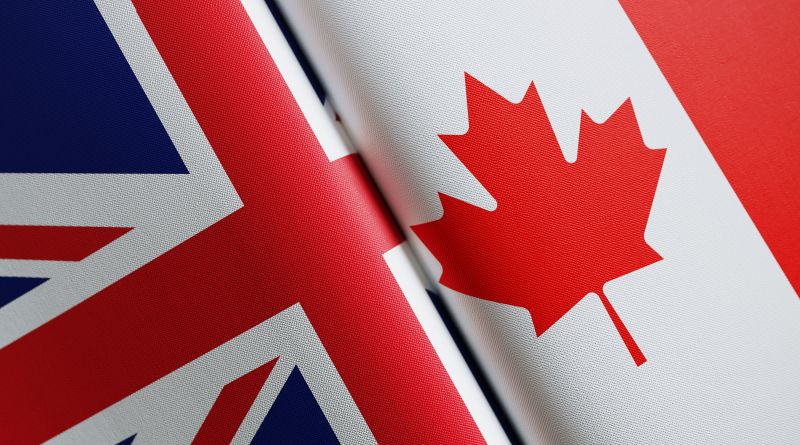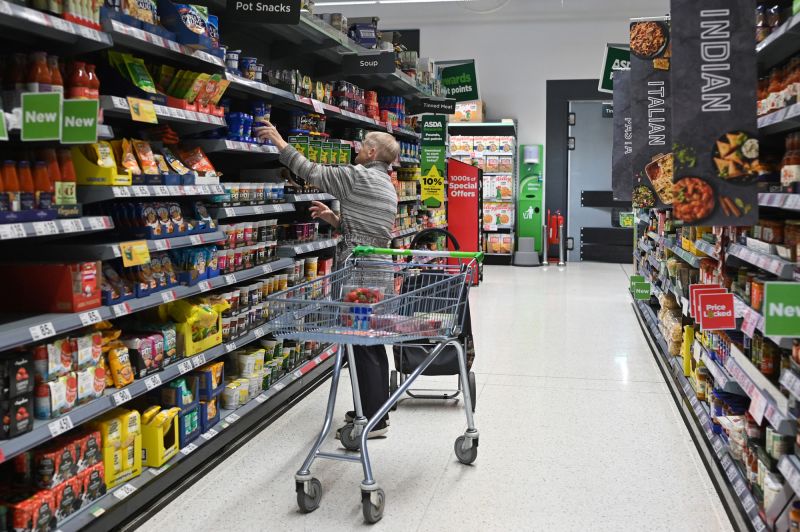
The New Border Controls and Their Impact on UK Food Imports

Exploring the implications of the new border controls on food imports from the EU and their potential impact on businesses and consumers in the UK.
Introduction
The recent implementation of new border controls on food imports from the European Union marks a significant turning point for the United Kingdom since Brexit. These controls, which came into force on Wednesday, have introduced a wave of regulatory requirements for businesses and are poised to have far-reaching effects on food prices and supply chains. The implications of these changes are substantial, and it is essential to understand the full scope of their impact.
Britain has walked away from negotiations with Canada over a post-Brexit trade deal because of disagreements over beef and cheese.
Meat, eggs, fish, and dairy are just a few examples of the fresh produce that now require 'export health certificates' and additional paperwork before entering the UK. The introduction of these measures represents a shift in the landscape of food imports and exports, as both EU and UK producers navigate the complexities of post-Brexit trade regulations. The significance of these changes extends beyond mere bureaucratic obstacles; it has the potential to alter the dynamics of food supply and pricing in the UK.
A customer looks at some goods at the Asda supermarket, in Aylesbury, England, on August 15, 2023. UK annual inflation stands at 7.9 percent, the highest among G7 nations, while the Bank of England is tasked by the UK government with keeping annual inflation at around two percent. (Photo by JUSTIN TALLIS / AFP) (Photo by JUSTIN TALLIS/AFP via Getty Images)
As the UK government estimates, the new checks are projected to cost British businesses approximately £330 million ($419 million) annually and could contribute to a 0.2 percentage point increase in food inflation over the next three years. However, industry experts are cautioning that the actual impact on inflation could be even greater. These figures underscore the magnitude of the challenges that lie ahead for businesses and consumers in the UK.
Challenges and Concerns
The introduction of these border controls signifies the first instance of EU food producers having to grapple with the post-Brexit border bureaucracy. While the UK has been subject to full border controls for three years, the delayed implementation of checks on food imports from the EU has raised concerns about potential disruptions to vital supplies. The government's rationale for these controls is to prevent the import of diseases and pests from plant and animal products, thus positioning the UK's border as the 'most advanced in the world.' However, industry groups have expressed apprehensions about the repercussions of these measures.
Industry experts have warned that the new measures could result in price hikes for essential food items and disrupt supplies when physical border checks are introduced in April. The British Meat Processors Association has highlighted the possibility of a 'sudden shock to the food supply chain,' citing issues such as diverging food safety rules between the UK and EU, as well as the shortage of EU vets available to sign export health certificates. These concerns underscore the intricate challenges that businesses and consumers are poised to face in the wake of these regulatory changes.
Implications for the Food Industry
The impact of the new border measures extends beyond administrative hurdles and cost implications. Rising food prices have been a significant contributor to the UK's cost-of-living crisis, and the additional friction in supply chains is poised to exacerbate these challenges. A coalition of 30 trade organizations representing the UK food supply chain has expressed concerns about the potential impact on the flow of critical food ingredients from the EU to the UK. They have highlighted instances where UK health certificates do not cover all EU goods imported by the food industry, leading to potential shortages of essential ingredients.
Europe stands as the UK's leading foreign supplier of food, accounting for over a quarter of food consumed in Britain by value. The implications of disrupted supply chains and ingredient shortages have raised concerns about food security and product availability. The repercussions of these changes are far-reaching, impacting not only businesses and consumers but also the broader dynamics of the UK's food industry.









